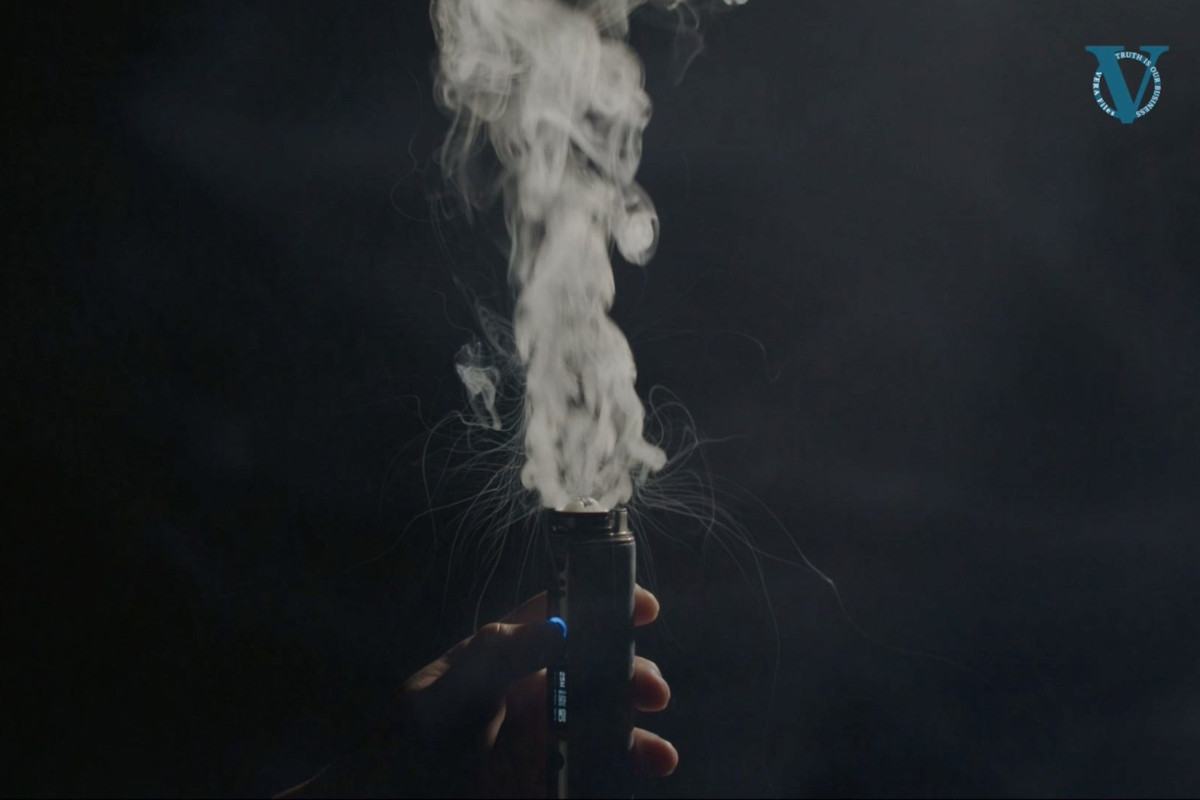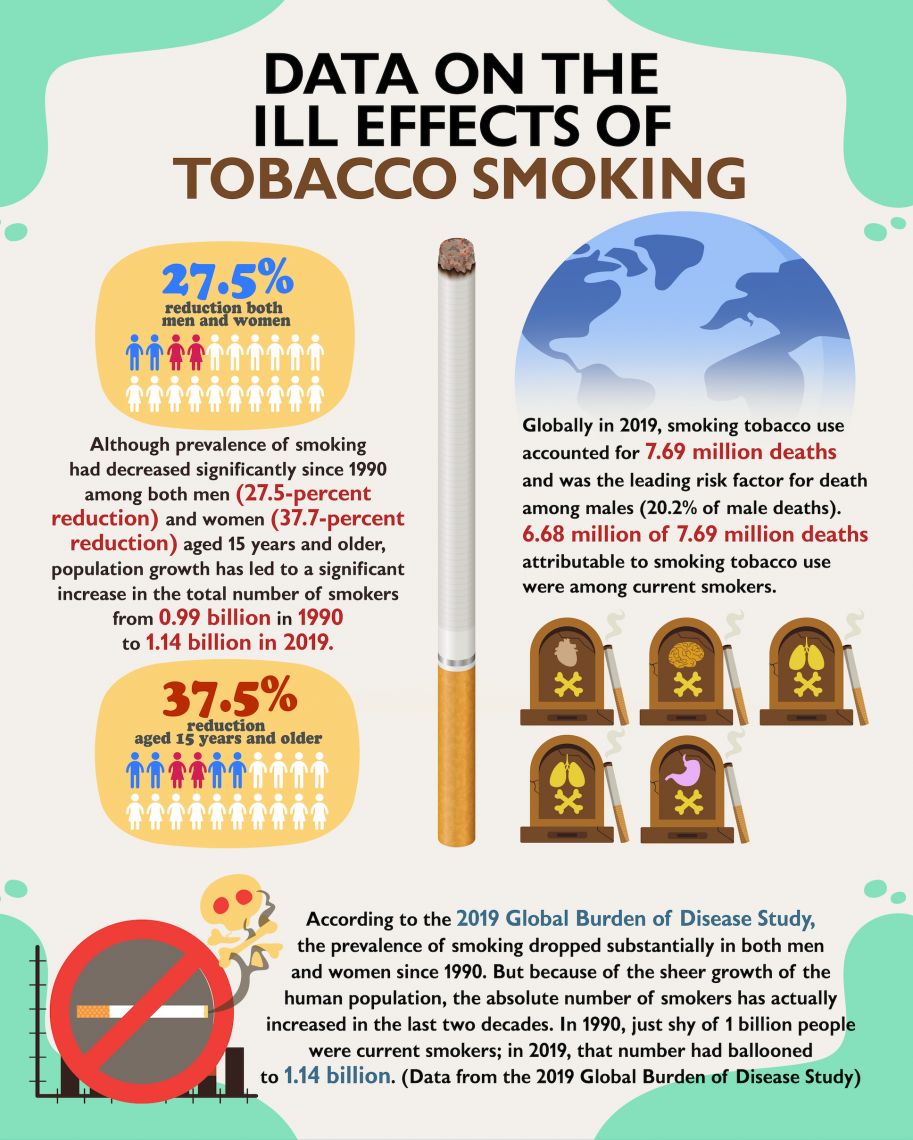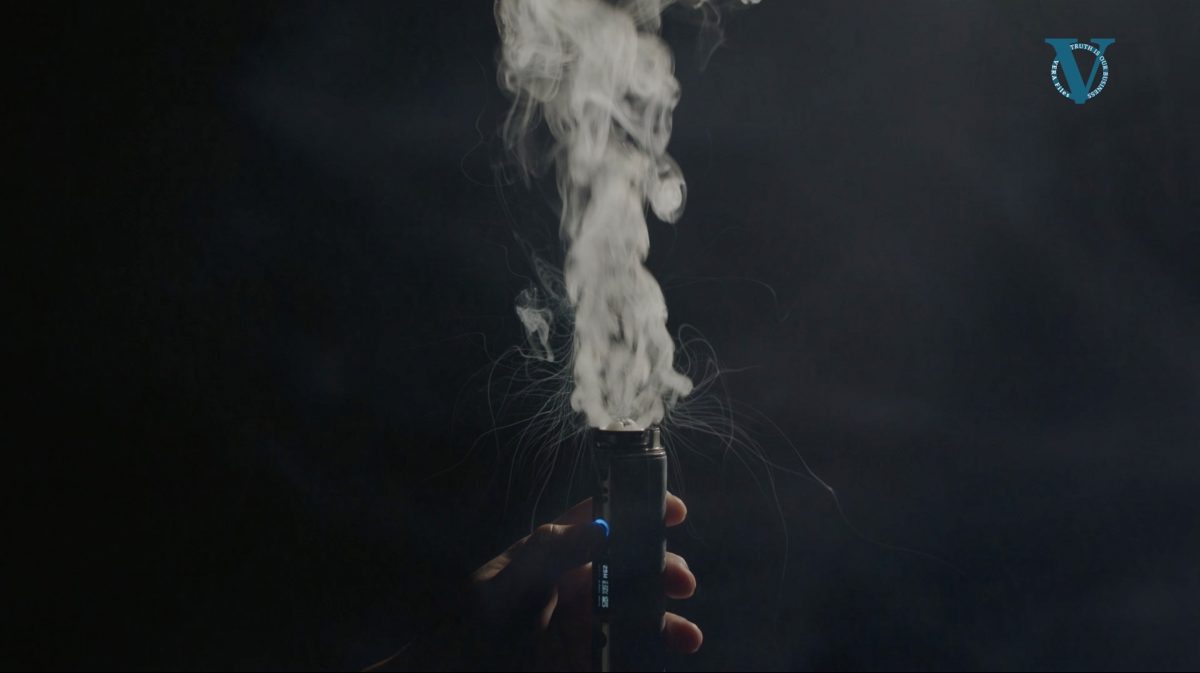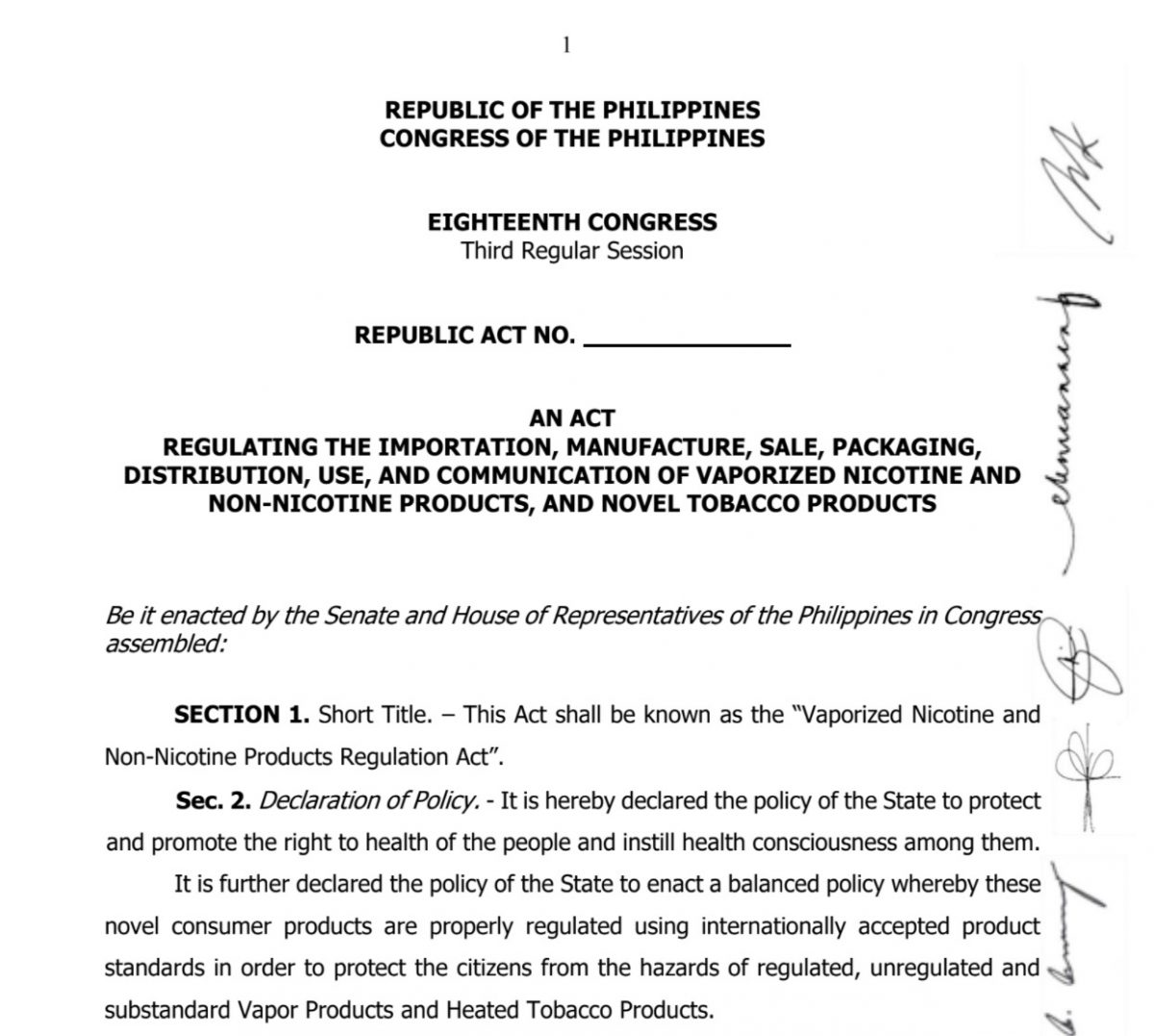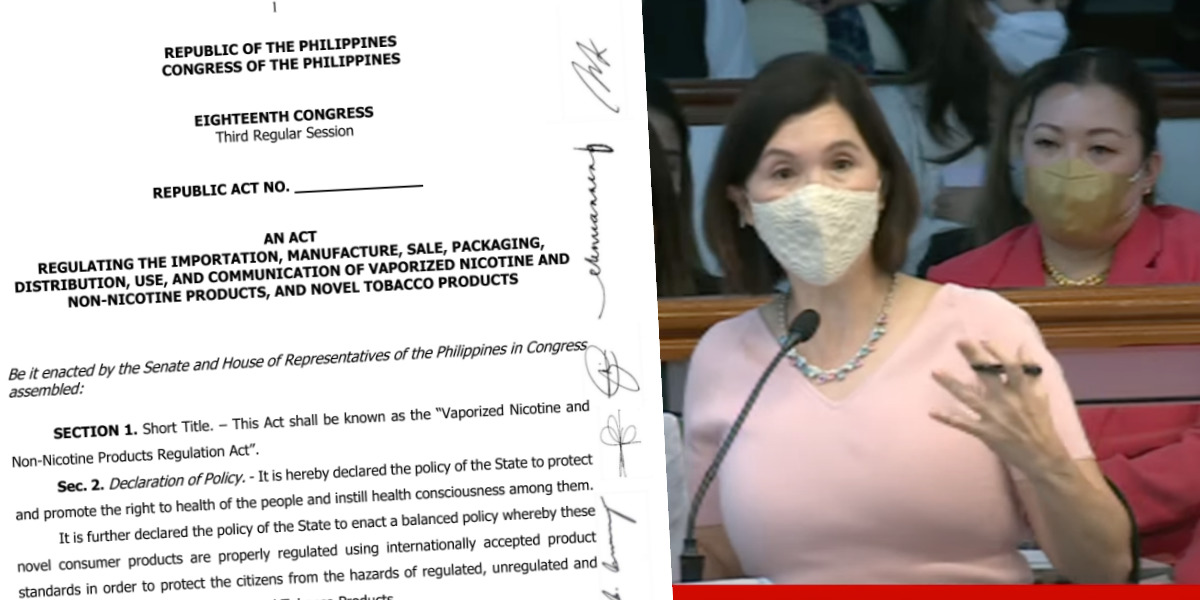More than four months have passed since Congress ratified in haste the proposed “Vaporized Nicotine and Non-Nicotine Products Regulation Act” or the vape bill, but the measure’s final copy has yet to reach Malacañang for President Rodrigo Duterte to either sign or veto it, or to let it lapse into law after 30 days from submission.
The bill, a consolidation of Senate Bill 2239 and House Bill 9007, seeks to repeal the provisions of Republic Act 11467, which, in turn, amended the provisions of the 1997 National Internal Revenue Code.
It’s been touted as a measure to protect and promote the people’s right to health. However, the bill lowers the age of access to electronic cigarettes or vapes and heated tobacco products (HTPs) from 21 to 18; takes away regulatory powers over these products from the Food and Drug Administration and turns them over to the Department of Trade and Industry; removes the two-flavor limit on electronic juices; and permits sponsorships beyond industry associations and trade events.
Sources say the final copy of the bill has been stuck at the House of Representatives. Senate President Vicente Sotto 3rd told a reporter that there were still “ongoing corrections based on the third reading approval and bicameral committee report ratification.” The bicam report was ratified by the Senate and the House last January 26 and it is still being corrected four months after. Why the rush to ratify it in January?
Are they sneaking in provisions that were not discussed during plenary deliberations and in the bicam? The bicam report already included some provisions that were not in the versions approved by the House and the Senate. These include the House contingent’s insertion of the phrase “and their devices, and novel tobacco products” to the Senate version of the bill, which was the agreed working draft of the conferees.
Because of the inserted phrase, the pending measure covers future industry creations that fit the definition of novel tobacco products as defined in the proposal — “all non-combusted substances in solid or liquid form, and innovations, either made partly of tobacco leaf as raw material or containing nicotine from tobacco intended to be used as a substitute for cigarettes or other combusted tobacco products.”
A deputy speaker at the House, who declined to be named, cited the strong lobby for Duterte to veto the bill, and his colleagues would want “to spare” the president. That sounds more plausible. Others surmise that the legislators hijacking it are buying time until the president will be left with no other option but to allow it to lapse into law.
Duterte will remain in office for exactly one month from today. Tomorrow, the Philippines joins other nations in observing World No Tobacco Day, an annual global campaign to raise awareness about the dangers of tobacco consumption. If the legislature had submitted the vape bill to Malacañang, tomorrow would be a fitting occasion for the president to send a message to Congress that he has never wavered in his anti-tobacco stance.
Proponents may also be waiting until the next administration to pursue the bill. President-elect Ferdinand “Bongbong” Marcos Jr. is perceived to be friendly with the tobacco industry. He also comes from the Ilocos Region, where tobacco farming remains a major source of livelihood to many families.
Senate President Pro Tempore Ralph Recto, the bill’s proponent, said the measure was meant to “regulate vaporized nicotine products, non-nicotine products and novel tobacco products.” But a closer scrutiny of the bill’s provisions would show provisions that deregulate the already strict provisions under RA 11467, making vapes and other novel tobacco products accessible to younger people and allowing more flavors of electronic juices that have been proven to entice the youth into the habit of vaping.
Recto and the other proponents also claim that the bill would “encourage a shift from smoking the unhealthier cigarettes to the alternative less harmful products.” Health advocates, however, dispute the claim that vapes and HTPs are healthier alternatives to smoking, noting that these products contain tobacco and other pharmacological substances that can cause serious ailments such as cancer, heart disease, stroke and dementia.
The education, health and finance departments, along with former health secretaries, several medical groups and civil society organizations, have repeatedly appealed to Duterte to veto the vape bill, saying it is regressive and anti-health. They are questioning the vape advocates’ assertion that the bill can help smokers to quit, noting the absence of conclusive scientific evidence, as the American Heart Association and several other organizations have warned.
Anti-vape advocates, on the other hand, have cited several studies that have found that people are likely to continue smoking regular tobacco products even while using vape, e-cigarettes and similar products.
One of the proposals of the Department of Finance (DoF) to the incoming administration is to increase the excise tax on cigarettes and electronic cigarettes. This has already been provided in RA 11467. The DoF just has to fully implement its provisions, along with those that the pending vape bill seeks to reverse. The revenue projected from RA 11467 has been intended to augment funding of the universal health care program, additional medical assistance and support for local governments and the Sustainable Development Goals.
Raising the taxes on tobacco and electronic cigarettes has been recommended by the World Health Organization as a way to reduce consumption of unhealthy products because higher taxes would mean higher prices for these products.
While calling for a presidential veto of the vape bill, anti-tobacco groups are baffled by the proponents’ delaying tactics, worried that something sinister is going on.
The views in this column are those of the author and do not necessarily reflect the views of VERA Files.
This column also appeared in The Manila Times.
